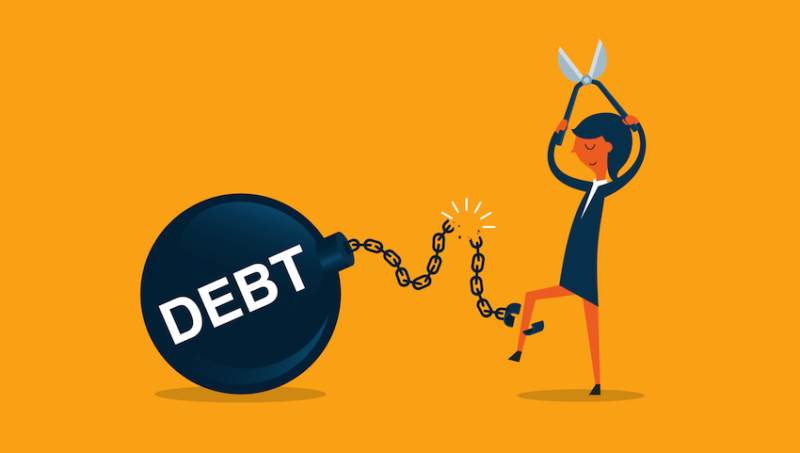It is always a challenge to manage finance and debt! According to a Federal Reserve data back in 2014, the count in non-mortgage credit for Americans had gone up to $3.3trillion. On the other hand, the non-revolving credit increased to $2.42 trillion. Regardless, of whether there’s a balance on credit cards or you have student loans to clear, debt is something that’s felt in all life areas.
Also, if the debt generates from various areas, it can make it problematic for you! It’s because you have to struggle with multiple payments every month. According to the studies conducted by Urban Institute back in 2014, almost 35% of the Americans have incurred massive debts and are lagging in the finance department. Most of the times, people are completely overwhelmed with their balances. However, there’s a solution to everything. And one of the best ways to reduce it is by opting in for the debt consolidation loans.
Understanding debt consolidation loans

Simply put, the concept of debt consolidation is easy. It sums up the debt amount you have from multiple sources, for instance, student loans and many credit cards, and merges it into one significant amount. It is a more natural way of paying off your debt! You don’t need to pay up at multiple channels and have trouble balancing due dates monthly. And there are two prominent ways for consolidating debt, and it is personal loans as well as balance transfers. There is a difference between the two.
If you want to consolidate just the credit card debt, opting in for a balance transfer is a good choice. The balance transfers are very easy. You need to ask for a balance transfer the moment you got approved of a brand-new card. The key here is to search for a card which provides you with 0% on all the balance transfer for a long time. Or it provides you with minimized APRs on your balance transfers. It will help you to bring down or do away with the interest that you’re paying by shifting your entire balance from a single or many cards. And it can happen where you pay high-interest for one, with a reduced rate or nothing at all. To know more on this, you check out the various debt consolidation reviews that are available online. It will help you to arrive at an informed decision about debt consolidation before you decide to go ahead.
Should you be aiming for a 0% or even lesser APR?
It is one question that most people facing a debt will ask. The truth is the majority of cards providing a 0% introductory APR, will come with a time frame that ranges between 12 and 18 months. Do you think you can clear all your debt within that time? If not, then it’s a smart call to search and opt-in for a card that provides you with a minimal APR. It will help you to stop paying a huge interest amount, the moment there’s an end to the 0% APR offer. It is essential to get these thoughts and concerns clear so that you can make ways to pay off the debt properly.
When it’s a smart call to opt-in for a debt consolidation plan?
The next question that pops in mind is that when it is correct for you to opt-in for a consolidation option. Listed below are some points that outline the success of debt-consolidation.
Your overall balance shouldn’t exceed over 50% of the total income
Your cash-flow can cover all debt payments consistently
You have a perfect credit score that will help you qualify for a debt consolidation loan at low interest or a 0% credit card
You also have a back-up plan that will secure you from falling into a debt
For instance, this is a situation when debt-consolidation makes perfect sense. You might possess four credit cards where the interest ranges between 18.99% and 24.99%. And you have the habit of making timely payments, which gives you a high credit score. Additionally, you might also have access to an unsecured debt consolidation loan with a 7% interest rate, which is much lower than others. It will help you in clearing off all the significant debts you have seamlessly.

When it’s not correct to opt-in for a debt consolidation plan?
You shouldn’t be looking at debt-consolidation as a magic solution for your debt issues. It fails to address excess spending habits which lead to debt. Also, if you are too overwhelmed by all your balance but don’t want to pay it off with minimized payments, it is not the solution for you. When you have a minimal debt quantity, you can pay this in as less as six months to maximum one year, the way your present pace is. Consolidating will result in just a minimal saving so that you can skip the option.
To many people, debt consolidation is like the light which is there at the tunnel end. When you opt-in for a loan that has a term of three years, you know that the repayment will get complete in three years. It is possible when you make timely payments and can also manage the expenditure. On the other hand, when you make reduced payment with the credit card, it could take more months for you to pay off all your dues. And here you might incur an increased interest other than the primary amount.
No one likes to stay in debt eternally. Everyone wants to repay the amount at the earliest and resume a balanced finance cycle. Debt-consolidation can be a great option to repay your entire loan, but you need to know the above-discussed facts to decide better for yourself.



